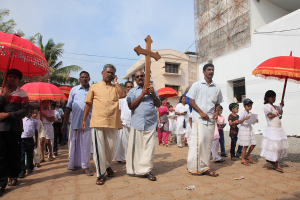God, are you there?

First, it’s important to highlight that some people are genuinely seeking God for answers to their struggles with faith and personal crises, and so my critique of the “hiddenness” of God acknowledges this reality. I do not excuse the need to address the problem of pain and suffering in the world, which I have cautiously reflected upon elsewhere.
I cannot fathom, however, theological perspectives that support God’s hiddenness. The thought that God hides Himself or plays “hide and go seek” with us is scripturally indefensible. The Old Testament writers communicated the ever-availability of God. Jesus did not teach that God was hidden from the world. The Apostle Paul who architected Christian theology ministered as though God were readily available. I believe God is reasonably transparent and can become personally real if we open our minds and hearts unreservedly.
A personal inquiry of God must rid itself of inward hesitancies. I have found that skeptics often begin with a personal preference for not wanting Him, for many lack a sincere commitment to finding Him. Humanity must make its heart vulnerable to discovering the possibility that “the truth is in Jesus” (Eph. 4:21). Jesus said, “This people honors me with their lips, but their heart is far from me” (Matt. 15:8). The point is that humanity tends to reflect religiously about the Christian faith, but it often hesitates to surrender the heart. God has always promised: “You will ... find me, when you seek me with all your heart” (Jer. 29:13). Paul also addressed the cultural thought of his day with the encouragement “that they should seek God, and perhaps feel their way toward him and find him. Yet he is actually not far from each one of us” (Acts 17:27).
Belief in the hiddenness of God stems mostly from lenses of human anxiety. Experiencing the plight of the world seems to contradict the love spoken of in the Christian faith. If humanity sets up an emotionally charged standard that can only be satisfied by empirical expectations, would it be fair to then conclude that God is hiding? So, what would have to happen for a seeker to experience Him?
What must not happen is to eliminate faith. There is no getting around it — faith is humanity’s connection with God. When the Psalmist inquired of God, “How long will you hide your face from me” (Ps. 13:1)? The personal experience of God had changed, from one of victory to pending defeat. The question highlighted how the inevitability of life happens and this transitioned to the comment later in the passage that “the fool says in his heart, ‘there is no God’” (Ps. 14:1). It’s not that atheists are fools, but that giving up on faith in God is unwise and can initiate an emotional vacuum. Without a connection to God, humanity makes itself the center of everything and then when it attempts to philosophize about God it laments His absence.
In He is there and He is not silent, Francis Schaeffer explained how the human experience of reality is left without excuse in its need of God. The Bible has spoken to us about God, about ourselves, and what is required of us. According to Schaeffer, when humanity attempts to justify the exclusion of God it contradicts its civil habitation in the world. On every level of reality, the ability to do science, to moralize, and to appreciate order, God is telling us about Himself. God is indispensable to the collective human experience.
Humanity finds the quest for God irresistible. Even a lament of God’s hiddenness can be positive as it underscores that He is required. “As a deer pants for flowing streams,” experienced the Psalmist, “so pants my soul for you, O God. My soul thirsts for God, for the living God” (Ps. 42:1-2). The Bible reveals how we need God and He is available to fellowship with us, and that relationship can be experienced.
The reason why high-profile apologists can debate in an atheistic environment is not due to their intellectual gifts or erudition, thought that helps, but to their personal experience of the Gospel. That’s what gives confidence to successful apologists. They also know that an open-minded seeker can only find the assurance of faith by a personal experience with Christ. This transition is supported by knowledge but ultimately, it’s the grace of God that completes the experience of Christian faith. To repeat, any internal hesitancy will prevent God’s grace from accomplishing its promise of forgiveness. That was the problem of the rich ruler whose internal hesitancy to surrender was exposed by the Lord Jesus (Luke 18:1-27).
The Spirit has been pursuing us ever since we “hid (ourselves) from the presence of the Lord God” (Gen. 3:8). The hiddenness of humanity seems more biblically defensible. God’s invitation to accept His amazing grace persists to this day. So “let us draw near with a true heart in full assurance of faith” (Heb. 10:22).
That great hymn, “Amazing Grace,” penned in 1772, has transcended time. Whenever I am walking around and I see a busker I always request “Amazing Grace.” Interestingly enough, I have yet to encounter a musician who is unfamiliar with it. Lately I pondered on the lyrics, I once was blind but now I see. Blind about what? Now I see what? Everyone knows that the allusion is not physical. Personally, I was once spiritually blinded by the belief that sin was fulfilling and that seeking to satisfy self epitomized the good life. Then my spiritual eyes were opened by the grace of God and Christ indwelled me.
I am so glad that the Spirit invited me to discover that God is real and that He wasn’t hiding from me.
Marlon De Blasio is a cultural apologist, Christian writer and author of Discerning Culture. He lives in Toronto with his family. Follow him at MarlonDeBlasio@Twitter



























